Graham Reid | | 4 min read
Benjamin Zephaniah: Neighbourhood Watch
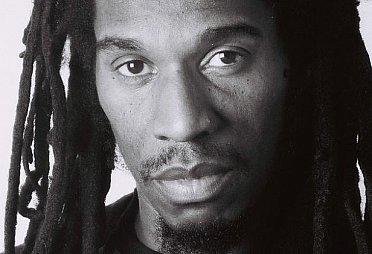
Britain's most popular serious performance poet for more than two decades, Benjamin Zephaniah, laughs as he recalls hating poetry as a kid.
If you said you liked it, it was as if you were filled with angst. And for a boy of Jamaican parents growing up in Birmingham, it was all a bit dead-white-male.
Yet, at 42, the much-published, dreadlocked Rasta is a writer whose work has captured the imagination of the literary world and schoolrooms across Britain.
The former borstal boy has performed in prisons (he's president of the Self-help Organisation for Ex-prisoners), in Israel and in Palestine under the auspices of the British Council, and has articulated the moods and concerns of the disenfranchised.
His body of work includes many poetry collections, albums where his authoritative Jamaican patois rides across reggae rhythms, he's featured on the track Empire on Sinead O'Connor's Best of CD, has written film documentaries and plays and books of Milliganesque children's' poems with amusing illustrations.
And there's a novel, Face, published last year, about a wideboy white kid who experiences discrimination for the first time when his face is burned.
It's a long way from his emergence in the late 70s, alongside other highly politicised performance Black-British reggae poets such as Linton Kwesi Johnson, to being Tony Blair's pick for Britain's poet laureate.
Yet the man who hated poetry has also said that when he was sent to borstal at 12, he already considered himself a poet.
"Yes, we were living double lives, saying at school we weren't poets, but we felt ourselves to be poets alongside U-Roy and Big Youth, poets of the reggae sound system, the street and community centres.
"People would say, 'Drop some lyrics,' and we would. But I thought when white people said 'poet' they meant white people from the past. So we shied away from the term poet and used rapper, toaster, chatterer. But after a while I thought we were just as good as those we read about, so we claimed the word for ourselves."
Then there was his response to calls from classrooms.
"When I refused to allow my poems to be studied in school, I'll never forget a young black kid saying, 'Why man? We have to study a lot of other stuff and we want to read you.'
"It was one thing to be so radical you didn't want to be taught in schools, but then we were complaining there was no black poetry being taught in schools.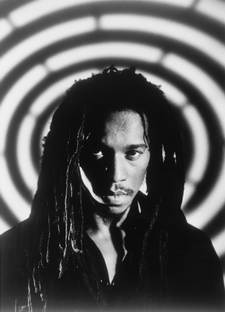
"Kids today think of me as mainstream. Dare I say it, me and Linton and people who have been performing for a long time and putting it on television have made poetry not such a strange thing. I'll come across people who are now 22 or 23 and they'll say they studied my poems alongside Shelley. You think, bloody hell! But it's good."
Zephaniah insists that when he started writing it was for himself, "not to suit the literary set," and there was a period in which he and others felt in conflict with established black writers such as Derek Walcott. "Some of us felt they were writing for awards and the academy, poems white people found comfortable to use at universities. I remember a well-established poet saying we had done so much for poetry and performance, 'but the problem is, we can't teach them.'"
Not that academic acceptance has been of much interest to Zephaniah, who has been shortlisted for poet-in-residence positions at both Oxford and Cambridge. With delight, he reports that they prefer him to perform - then go home.
Even now, although he hasn't smoked marijuana in years, many fear he will be passing out joints. Instead, he says, when he last went to Cambridge he was approached three times by students offering cocaine.
Zephaniah says he's shot his mouth off too much about the literary establishment to be accepted, but newspaper polls for poet laureate have always put him at the top, or behind the witty Wendy Cope.
Without wishing to name names - though Ben Elton's comes up - he says many politicised British writers, poets and comedians were revealed as one-subject people.
"A lot were anti-Thatcher and when she went they faded with her.
"I can honestly say I feel as angry now about the arms trade and racism as I ever felt. The most core things have not changed one iota."
In Britain today there isn't enough political poetry, Zephaniah says, although he concedes that when he emerged targets were more readily identifiable: racism, skinheads, injustice in South Africa, the arms trade, the Cold War, Labour v Tory.
"Now it's blurred, we don't know the difference between the eagle and the bear. And racism? Today you're likely to get beat up by a guy in a suit, not a skinhead. The fact is, figures say racist attacks in Britain are as high as they have ever been, and there's not lots of skinheads."
Despite the passionate politics, Zephaniah is good-humoured and self-deprecating.
"I think of the role of the poet as like that of the griot in African culture - the storyteller, the newscaster, that kind of thing. The poet's role is to nudge people and remind them, not hit them over the head. I think they turn off.
"They've been hit over the head too much and the people who are suffering don't want to come out and listen to more suffering, they want to be lifted. And the people who are not suffering don't want to just hear about people suffering."
Zephaniah says that these days his performances - limited in Britain now because of other commitments - invite people in with humour, get the message across, then bring them back with humour.
"But deep down I see politics in everything. Sometimes I try to write something non-political but there's always a sting in the tail."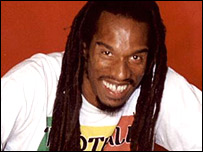
Which might have made life difficult had he got the nod for poet laureate?
"Yeah, but it's a position that's never really interested me. A people's laureate would be more interesting. I did a performance a while back and Stephen Lawrence's mother came up and said, 'You are our laureate. When we need poems written we come to you, or you voice what we are feeling.'
"That was moving because a lot of people in Britain today feel they have no voice. But if people ask me if I'm the voice of black people or the dispossessed, I say no. I'm the voice of me - it happens a lot of people connect with what I say."


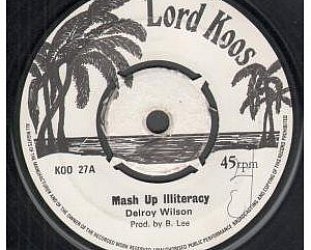
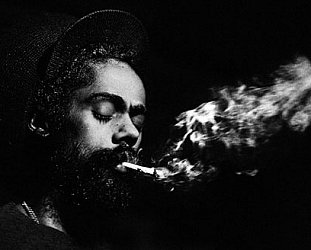
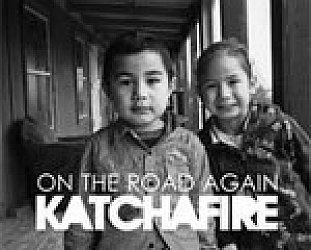
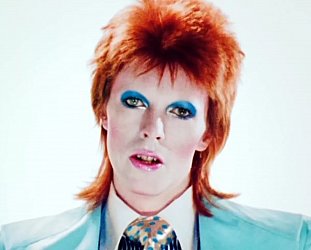
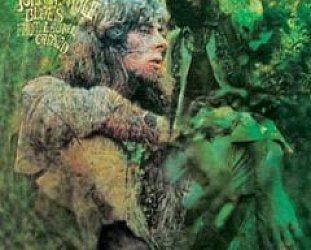
post a comment